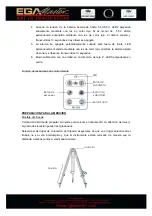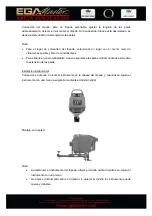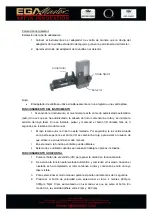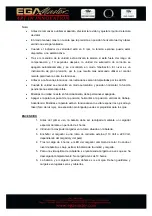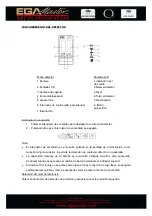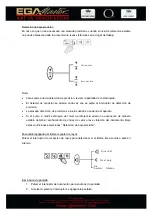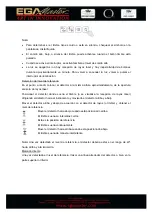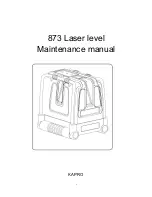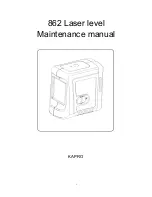
MAINTENANCE
A. Maintenance after use
Stains on the main body
•
Brush dust off and wipe off moisture with tissue paper.
•
Clean off any stains with a soft, dry cloth.
•
Excessive stains should be removed with a soft cloth soaked in a water diluted neutral
detergent and squeezed dry. Do not use benzene, thinner, gasoline or chemicals.
Stains on the glass surface
Brush dust off
Gently wipe off stains with a silicone cloth or a cleaning cloth for eye glass lenses.
Excessive stains should be wiped off with soft cotton cloth impregnated with a cleaning liquid for
eye glass lenses.
Handling the battery
If the instrument is not to be used for a long time, be sure to remove the batteries from the
instrument and the detector and store them.
Note:
•
Be sure not to use chemicals such as benzene, thinner or gasoline.
•
Be careful not to scratch the glass surface.
•
Leaving the batteries in the instrument for extended period may cause power consumption
even if it is not in use.
•
If used battery is left in the battery holder, the instrument of the detector may be damaged
by the battery fluid leakage.
B. Check and adjustment of the datum point
Horizontal check
•
Set up the instrument on the tripod 20m away from one wall so that the ‘X 1 side’ of the
instrument faces the wall and turn it on or auto-leveling.
•
Turn on the detector. Keep adjusting its position for appropriate level mark on LCD display
and mark the reference point (A) at the moment.
•
Loosen the center screw of the tripod to turn the instrument 180º to let X2 face one wall.
•
Readjust the detector position for appropriate level mark on LCD display and mark the
reference point (B) at the moment.
•
There’s no need to adjust the unit if the distance between point A and B is no greater than
3mm measured with target plate and ruler.
Summary of Contents for 65512
Page 1: ......























